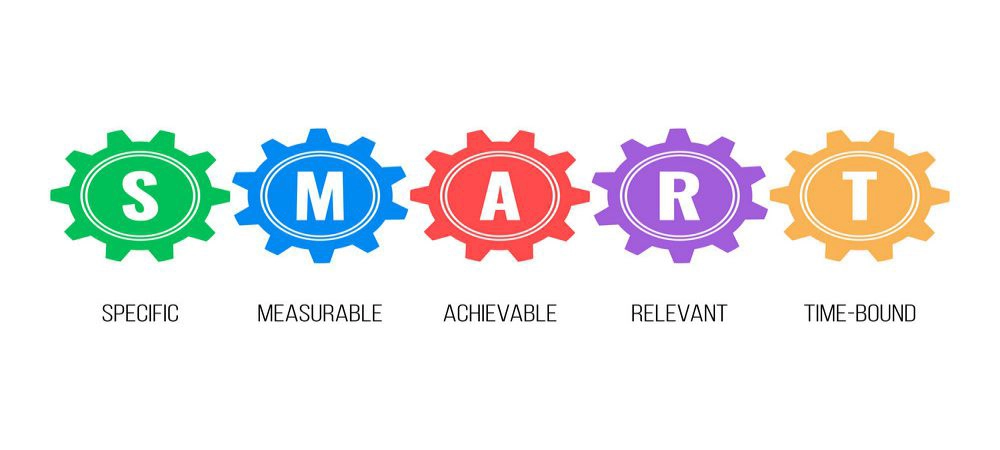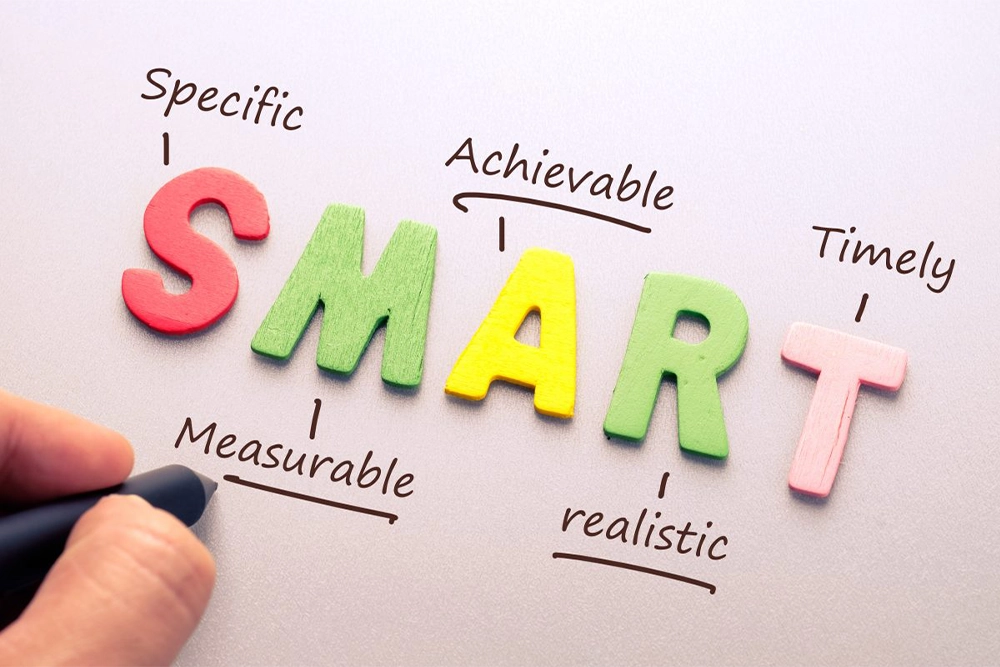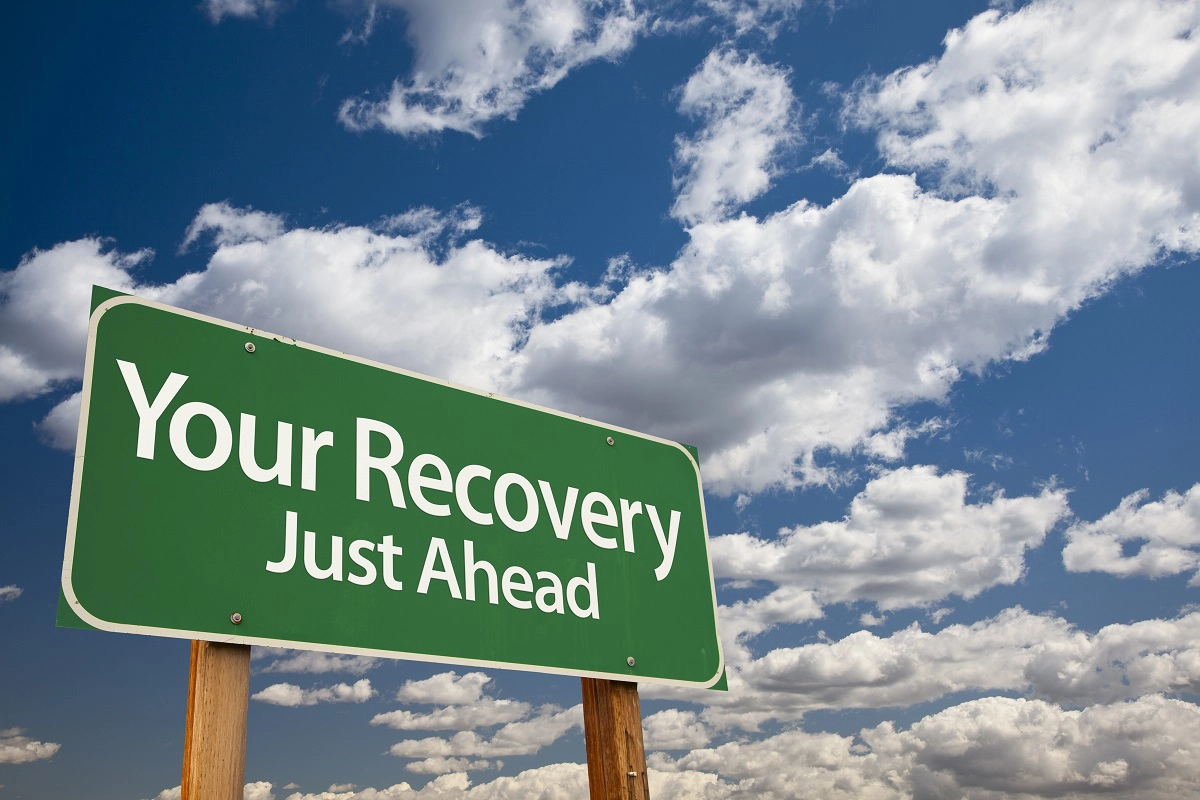If you know how to set SMART goals for recovery, you are one-third of the way to addiction recovery. Sobriety is difficult in itself. Fortunately, there are tangible and workable ways to go through the drug addiction recovery process one careful step at a time.
If you are currently in the first year of overcoming your substance use disorder, acknowledge that recovery can sometimes feel too overwhelming. At times, it can even take more than a year to achieve a completely sober lifestyle. But know that recovery is possible as long as it is prioritized and specific actions are taken to reach it.
Setting SMART recovery goals will help you achieve sobriety. SMART means Specific, Measurable, Achievable, Relevant, and Time-bound goals that will help you stay within your target. Setting actionable short-term objectives are feasible baby step to rehabilitation and healing.
S is for Specific

Similarly stands for sobriety and stress. Though recovery is the priority goal, facts state that people struggle to stay sober especially if life becomes too stressful for them.
Setting specific goals helps stave away the feeling of hopelessness or impossibility. It also gives the impression that obstacles, though present, can be overcome. How?
As an example, instead of pronouncing that you want to ‘lose weight’, you can say your goal is to ‘lose 5 pounds in two months by alternating aerobic exercise and high-intensity training for twenty minutes a day, for four days a week’.
Writing down your goal forces you into specificity. It compels you to answer detailed questions such as what you need to do, when and for how long, where, as well as how. Being specific keeps you focused and on track. A general goal is easy to dismiss or make excuses for. Similarly, general objectives also promote procrastination.
Identifying what you want to accomplish as well as the whys can aid in your full recovery. Plus, keeping your goals achievable in the short term increases the chances of you accomplishing it.
M is for Measurable
Placing a benchmark on when and what you need to achieve can keep you in line and on track to reaching them. You can make it your specific goal to stay sober for 7 days. Your ability to reach seven days in full sobriety can further push you to remain sober for 7 days more until you realize you have been sober for an entire month.
Set a workable timeline to reach your objectives one goal at a time. Attending a drug addiction recovery group helps push you to start seriously working on your rehabilitation. Without a gauge to measure how much you have achieved, it makes it difficult for you to know if you are progressing or not. The easiest way to make your goal measurable is to place a number on it.
For instance, if your goal is to stay drug-free, establish the number of times you need to attend a drug recovery therapy group or program or engage in physical aerobic activity (such as going to the gym). You can specify that you must go to the program three times a week, or attend gym lessons two times per week. Keeping your goals quantifiable is a necessity.
A is for Achievable

In order to achieve your goals, they should be attainable and realistic. Your dream may be to lose weight. But if you make it your goal to lose 300 pounds in one year, you are shooting for the moon. Starting with losing a pound every two weeks is doable and reachable. The target for that is instead. If you lose a pound a week, that is even better!
Achieving one objective at a time inspires you to achieve another and then another. Eventually, you realize, you have achieved far more than what you thought you could.
In the same vein, an achievable goal makes it easy to avoid the feeling of being overwhelmed. This does not mean you are to set the bar low. Feel free to aim high. But put in achievable milestones that will take you one step further to your overarching goal. It is always easier to visualize the steps you need to take when you can literally grasp the end-reward.
R is for Relevant
Goals, no matter how good they are, are meaningless if they are not relevant to your life. If your objectives do not serve your day-to-day lifestyle, it is inconceivable for you to want to even work to achieve them.
It is essential for your goals to be in line with your life intent. If for example, you want to live a clean life free from drugs, it is because you want to give your family and friends the best version of yourself. You can set goals atop your other goals, or have all of them be connected to one main objective – that is to achieve 100% drug recovery.
R can also stand for realistic. It is necessary for goals to be achievable and realistic. You do not want to set an ideal goal that will only lead to failure. Have an objective that is not too extreme that it is impossible to be completed.
In order for a goal to be realistic, map it out with corresponding landmarks that will make it easy for you to inch towards actual accomplishment. The steps must be actionable and doable.
T is for Time-bound
Set up parameters to which you can measure your goal. Place specific time frames that will allow you to know when you started, and when you expect to end. You may start by setting up a one-year time frame of regularly attending a drug rehab recovery group.
Having a specific deadline will help you complete your goals one careful step at a time. You can also hold yourself accountable so you can focus on what you need to do. It is easy for life to get a hold of us and thus cause us to lose sight of our goals.
But giving yourself a deadline will help you successfully stick to your plan. Plus, it is easier to visualize where you want to see yourself six months, a year, or three years from now.
[activecampaign form=1]
Why is it Important to Know How to Set SMART Goals for Addiction Recovery?
No one will mandate that you set SMART goals before you start your addiction recovery process. However, if you’re serious about staying clean, it is a crucial step in your journey.
Here are the top benefits of setting SMART goals in addiction recovery:
- SMART goals help you focus on the future and present.
- SMART goals spur you to develop the right work ethic and be patient.
- SMART goals help in creating a sense of fulfilment when you reach your goals.
The numbers also show that setting SMART goals during addiction recovery will increase the chances of achieving long-term sobriety. Adults who set SMART goals are 10 times more likely to achieve their aims and objectives.
Getting Started with Addiction Recovery

Now that you know how to set SMART goals for addiction recovery, where exactly do you start, and how do you go about your recovery?
Recovering addicts can have similar goals. For example, many patients in a rehabilitation center can have a goal to take marijuana once a month. However, what distinguishes addicts is their values and the reason for setting these goals.
For instance, some may set this SMART goal because their addiction is affecting their work-life balance. Others may be interested in it because they need to show their spouse that they can stay sober-free for a month. Whatever your reason to get started, ensure it is genuine.
Tips on How to Implement and Stick to Your SMART Goals
Knowing how to set SMART goals for addiction recovery is easy. But it’s only one side of the coin. The other (which is the challenging bit) is following through on your goals.
Aside from writing them down, here are a few tips to help you stay committed to the goals you set:
Share your goals with someone
There’s nothing like having someone set you straight when you experience a setback. Therefore, to increase your chance of achieving your goals, have someone check up on you periodically.
This feedback system can come in several forms. For example, if your SMART goal is to stay sober for a year, have your loved ones give you random drug tests within that period. This way, you’ll be less likely to slip up on your goals.
Work towards avoiding setbacks but expect them
If you set goals with the mindset that everything will fall perfectly in place, you may be in for a shocker. With addiction recovery, there’s no telling how things will turn out. So, always create reroutes that can lead you to achieve the same or similar SMART goals.
If you don’t, the smallest misstep can take you off course and lead you to drop your goals altogether.
Seek professional help
Sometimes, everything you do will seem not to be going your way. For first-timers, the milestones for addiction recovery and treatment can seem far-fetched from the get-go. When the process starts feeling overwhelming, contact a medical professional or staff member in a rehabilitation center.
These professionals have hands-on experience dealing with addiction recovery and setting up SMART goals. Therefore, they are in the best position to give you the solid advice you need to push through your fears or challenges.
Conclusion
All in all, SMART goals are simple, easy, and straightforward ways to increase the success of your drug recovery efforts. Breaking down your objectives into achievable chunks will help effortlessly achieve one target at a time.
Once you achieve full drug addiction recovery, you will be free to live the best life possible. No longer will you be going through uncomfortable withdrawal periods. Sobriety is 100% possible and within your easy reach. Let’s get it!






